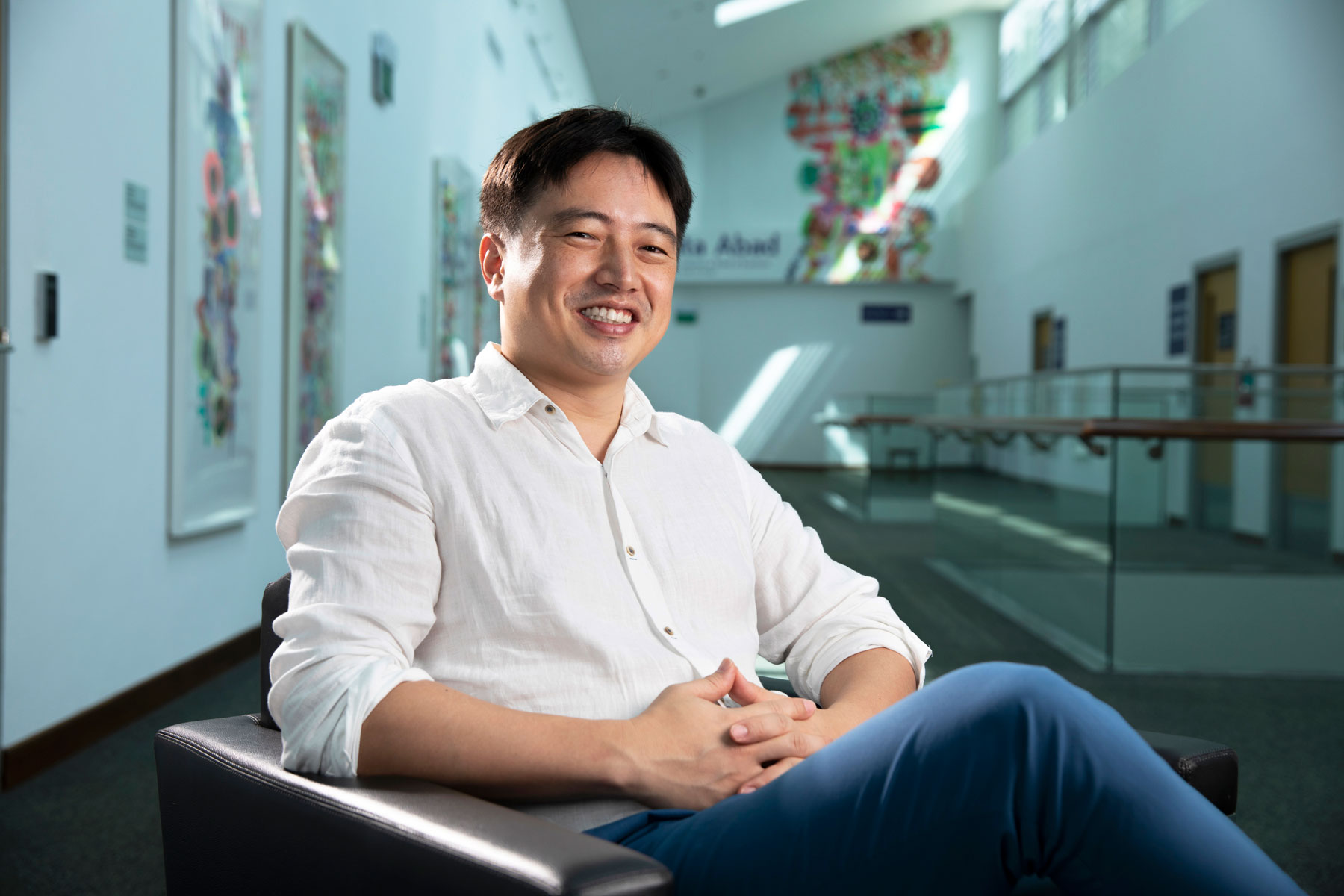Prof Seonghoon Kim

Feature on Seonghoon Kim, Associate Professor of Economics, School of Economics
Deputy Director, Centre for Research on Successful Ageing
Singapore Management University
Tracking social change and response in Singapore
From long-term retirement preparedness to short-term pandemic policies, Associate Professor Seonghoon Kim uses micro-data to assess the big impacts on Singapore’s quality of life.
Singapore is adding another dramatic social shift to its half-century of change: the proportion of people who have reached 65 years or older is expected to climb from 15 percent in 2019 to 25 percent by 2030.
Of course, the sharp rise is no surprise, but rather a positive result from Singapore’s race from third world to first, driven by the very people now arriving at their retirement years. Even so, it is a new and unexplored phase, which requires a close watch on how well people and policies are adjusting: are seniors active and involved in the community, are they getting the right healthcare, and are the means of paying to support these efforts efficient and fair?
When Associate Professor Seonghoon Kim arrived in Singapore via his home of South Korea and then the United States, Singapore’s population structure and economy were new to him, but he was ready for the challenge. As an empirical economist focused on labour and health, he had expertise in areas crucial to Singapore’s aging challenge. “I began studying the impacts of public policy such as CPF and re-employment policies using microdata and factors affecting economic well-being of older workers,” recounts Kim, who has since become Deputy Director, Centre for Research on Successful Ageing (ROSA).
ROSA was established with funding from the Singapore Ministry of Education and Ngee Ann Kongsi (NAKS) to understand Singapore’s population structure and ageing trends. At the heart of ROSA’s research is the Singapore Life Panel (SLP), which surveys the economic, social, physical and psychological well-being of older adults. Since 2015, the effort has followed over 12,000 participants and yielded 7,500 responses monthly.
The SLP provides high-frequency and longitudinal data on Singaporeans’ income, expenditures, healthcare utilization and life satisfaction—quick snapshots of dynamic changes as they unfold, explains Kim. With this data, researchers can paint a holistic picture of well-being at various stages of the senior years. “To make Singapore a better place for the next generation and senior citizens, we, as economists, want to understand what is really going in the society first” says Kim.
Observing policy impacts
The tricky question of when to allow people to unlock their Central Provident Fund (CPF) savings as they approach retirement, provides one example of how the SLP helps us understand what happens when the government adjusts its policy levers. In the study Does early access to pension wealth improve health?, Kim and Korea University Associate Professor Kanghyock Koh examined the health and subjective well-being impacts of allowing people to withdraw some of their CPF savings upon turning 55 years old even before their retirement. Analysis of the SLP data revealed that early access led to enhanced self-reported well-being, primarily through better psychological health and life satisfaction.
Achieving the right tax balance to support an aging population is another challenge where evidence is crucial, says Kim.
“The challenge for any government is finding the ‘sweet spot’ in setting different tax rates and pooling funds to address evolving social challenges—such as supporting an aging population,” he says. Raising employer CPF contributions, for example, should translate into greater retirement savings. But the risk is in how employers respond, notes Kim, citing his study on Labor market institutions and the incidence of payroll taxation. “Because Singapore’s labour market is highly competitive, wages are highly responsive. When taxes change, the wages change, too. So, raising the employer’s CPF contribution might not necessarily improve retirement preparedness as much as the policy intended as the wages might downward adjust.”
The Singapore Life Panel has aided preparedness in other, more unexpected ways.
Research in the time of COVID-19
Kim clearly recalls the 3rd of January 2020, when Singapore detected Covid-19 within its borders, on the tourist destination of Sentosa Island. By March 2020, his regular work ceased, and his Covid contribution began. He soon realized that the SLP high frequency survey data was tracking the very things that had become disrupted: income, job, spending, happiness. “I saw this as the best chance to provide information about what was going on in Singapore, every month.” It was, he adds, a chance to show what economists can do for the society.
Kim’s research on Short-term impact of COVID-19 on consumption spending and its underlying mechanisms showed links between the national ‘circuit breaker’ and decreased consumption spending, economic uncertainty and lower incomes. The team used what they saw to lay out policy suggestions. These included providing cash transfers and support programs that favour disadvantaged households who faced larger drops in income but were less likely to be insured against these adverse events.
By tracking the well-being of SLP participants over a period of 18 months, Kim and his collaborators also showed the ways in which life satisfaction levels declined in the lead-up to and following the circuit breaker. Importantly, the negative effects were much greater for those who experienced income losses. The findings were reported in the paper, Life satisfaction changes and adaptation in the COVID-19 pandemic.
Enabling evidence-based decision-making in this way goes to the heart of Kim’s research and his ambition to use economics to improve the quality of life for all. “I hope that policymakers can use our research to design effective policies to support seniors and improve retirement preparedness in the coming years.”